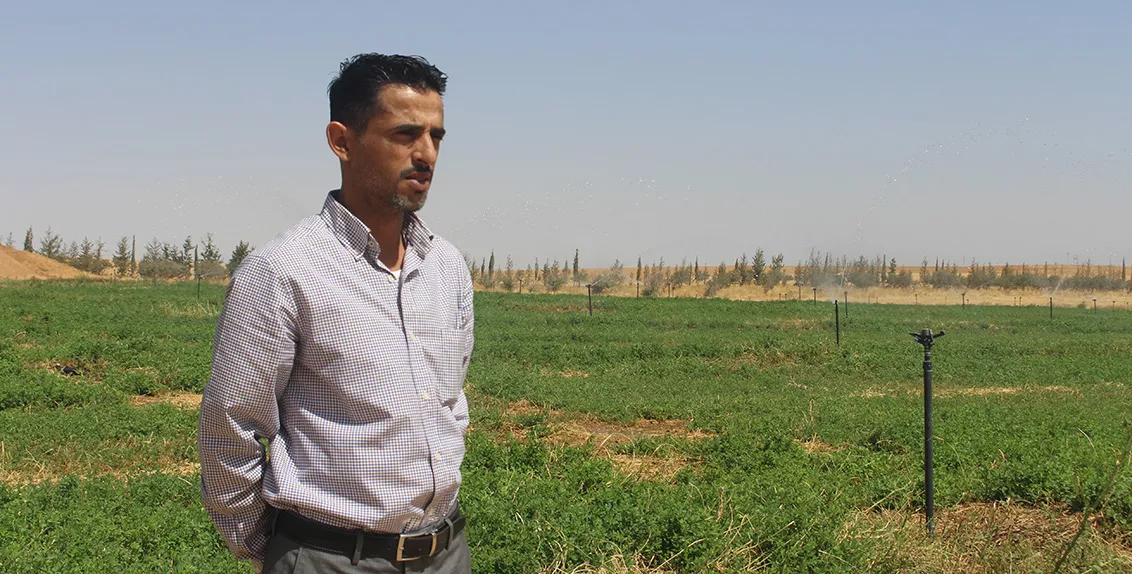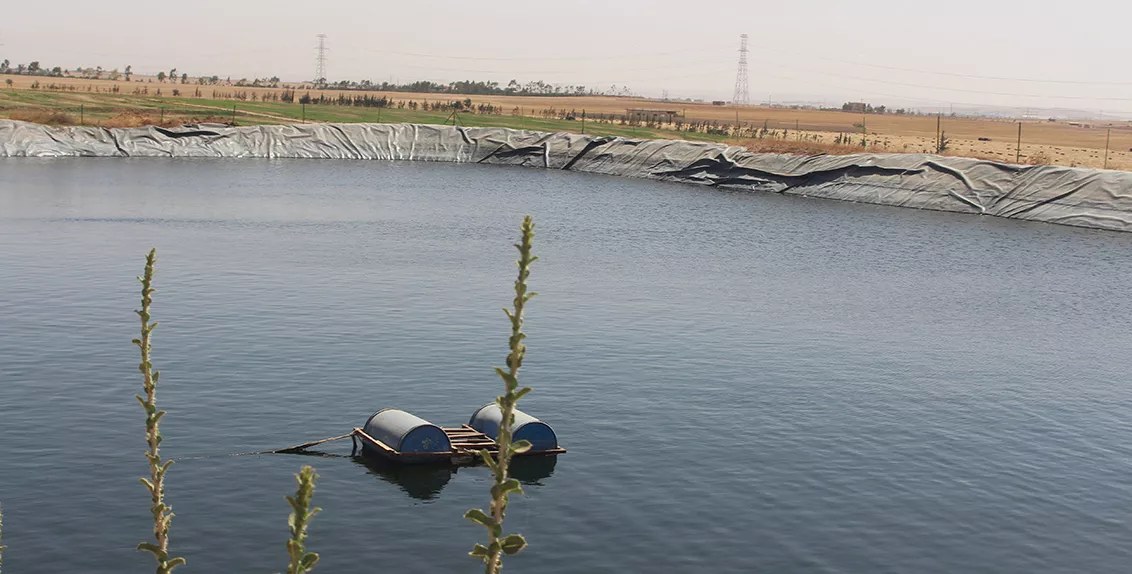Water scarcity prompts Jordanian farmers to use treated wastewater to grow forage crops
10 December 2018
Climate change and sporadic rainfall have worsened water scarcity in Jordan, especially in the areas where people rely on farming and livestock to make a living.
Thirty-year-old Mohammad Al Fayaz knows first-hand what water scarcity is. His village of Umm Rumaneh, where he returned upon graduation with a law degree to help his father and brother with farming, is the only village in Al Jizah District, south of Amman, where no underground water has been found.
“After digging three wells, we failed to find any water,” he laments. This was more than ten years ago, he adds.
“Farming is our main source of living, and the university degree, which my father made sure my siblings and I earn, was meant as a means of security that might come handy in future,” he continues.
Although they had not found any underground water, his father’s love for land did not change, he notes.
He explains that his father and village seniors then shifted their attention to a nearby pool of water to irrigate hectares of peach and apricot orchards.
“My dad suggested to the senior village figures that we should make use of the pool to irrigate 3 hectares of fruit trees, especially given that its water used to overflow due to rainfall, becoming a source of health and environmental hazards for villagers,” he explains.
“We spent ten years making use of the pool to water the fruit trees. Then, all work stopped due to issues with officials at Greater Amman Municipality. The land became arid once again after the trees dried,” he complains.
“At the beginning of 2016, with the implementation of the water treatment station project near Al Jizah District, we learned how to safely use treated wastewater at a workshop carried out by the International Center for Biosaline Agriculture (ICBA) in cooperation with the National Center for Agricultural Research.
“Scientists from ICBA said that it is possible to grow salt-tolerant crops and forage crops, and highlighted environmental management systems that can work with treated wastewater.
“We succeeded in obtaining approvals from the owners of the land which the water passes through, right from the station to our own land, and started to collect it in a 0.5-hectare pool.
“As a result, we began cultivating 10 hectares of land rather than 3 hectares,” he smiles.
This became possible thanks to the scientists who explained that using treated wastewater for irrigating crops poses no harm to the environment and people’s health, he adds.
The villagers are now growing forage crops using treated wastewater.
“Our fodder, including alfalfa, oats and corn, is now ready for sale at the local market at a good price,” he continues.
This success encouraged other farmers in the village to prepare their lands for growing forage crops using treated wastewater in the coming season. Thus, the area of land cultivated throughout the year in the village has increased and people have changed their minds about treated wastewater.
This work, part of the Beit Al Khair Society projects on growing fodder, improved the area’s infrastructure and led to building more roads and installing electricity poles so that farmers can reach their lands more easily.
The results of irrigation with treated wastewater also encouraged farmers in areas near the wastewater treatment station to use it to grow forage crops.












